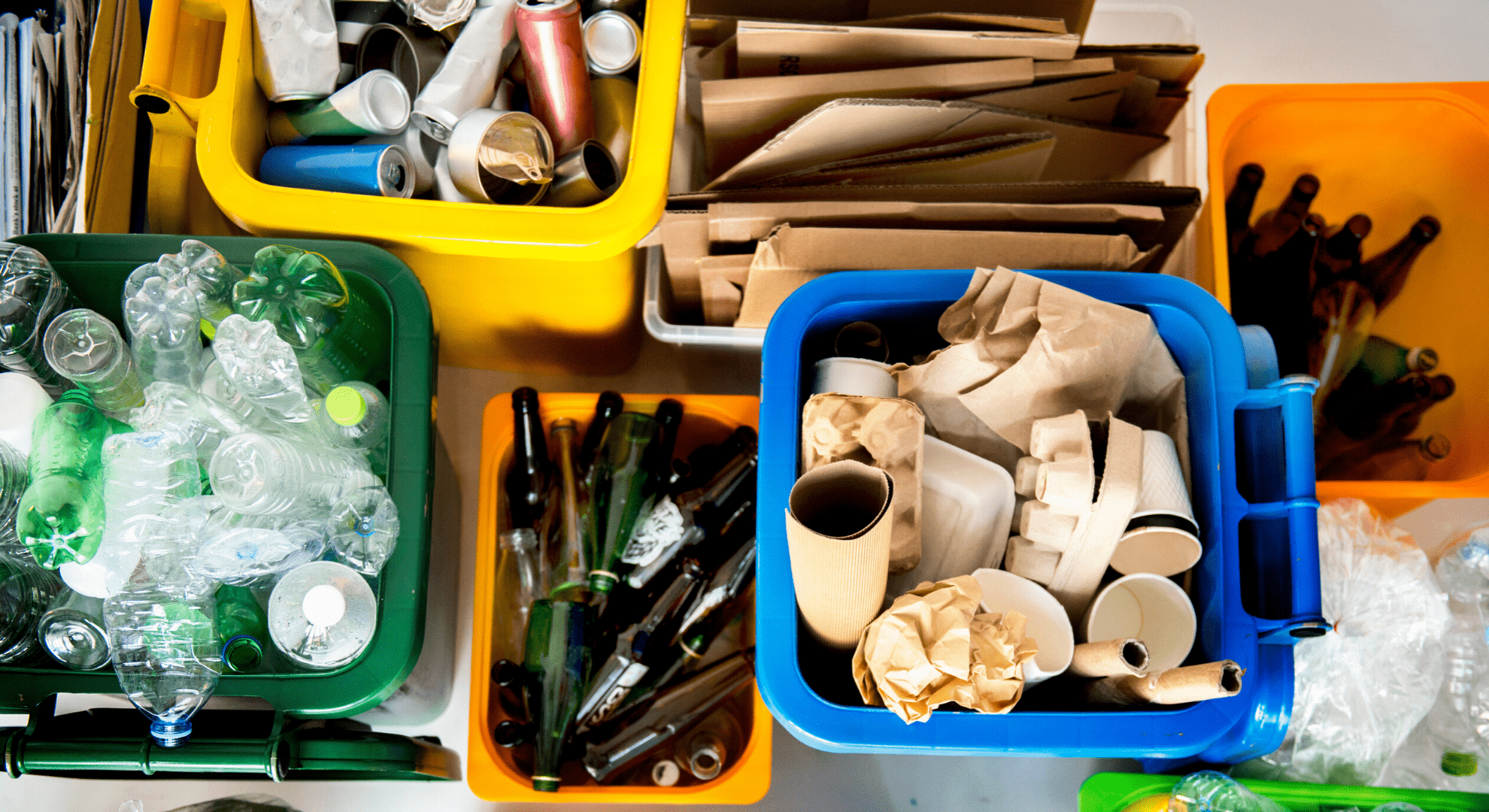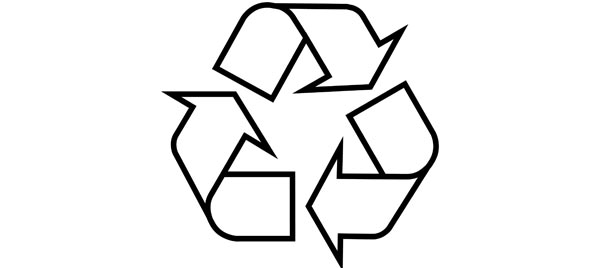
Five recycling myths busted
From ‘wish-cycling’ to plastic recycling, we sort the facts from the fiction in our five recycling myths busted…
Myth #1: If it has this recycling symbol (mobius loop) on it - it can be recycled!
Answer: Wrong.
The mobius loop can be a bit confusing as it shows that the material is capable of being recycled, not that it has been recycled or that it will be accepted by your kerbside recycling collection.

The symbol to be on the lookout for is the green recycling ‘swoosh’ which shows that the material is currently widely recycled through kerbside collections in the UK.
It is important to remember that the On-Pack Recycling Label scheme focuses on what the majority of UK local authorities collect, so it may not apply to where you live. For recycling, the first place to check what can and can’t be recycled should be with your local authority.

Myth #2: Biodegradable wipes are better for the environment
Answer: Potentially, depending on the brand but avoiding wipes is better.
Biodegradable single-use items are still disposable and should be avoided if you can. Our advice is to reduce, reuse and buy better. If possible, consider not using wipes, reducing the number of wipes you use or making your own reusable wipes.
Regular wet wipes contain plastic fibres and they can be harmful to the environment when disposed of incorrectly. Biodegradable/compostable wipes are made from organic cotton/plant-based products and should be plastic-free. But it’s important to research the brand as some wipes can still take several years to biodegrade.
All wipes, even if they are biodegradable, should be disposed of alongside general waste. Wipes should NEVER be flushed down the toilet as this contributes to waste in the ocean. Wipes can’t be recycled (and they can’t be put into a food waste caddy either).
You should also keep biodegradable wipes out of your home compost pile, because of the contaminants picked up on the wipes such as make-up or the contents of nappies, and they will not break down in the composter.
Myth #3: All recycling gets sent abroad
Answer: Wrong.
Once the contents of your recycling container or bin have been collected, it’s taken to a materials recovery facility (MRF) to be sorted and separated into different types of materials - this is done by hand or machine (or both) before being baled.
Once recycled materials are sorted and baled, they are sold to reprocessors to become new products. Items such as glass, paper and cardboard are recycled in the UK.
Recycling is a worldwide market and currently, not all materials can be reprocessed within the UK, so some items do need to be sent abroad. The issue is when the illegal dumping of waste/recycling materials occurs in other countries.
SEPA (Scottish Environment Protection Agency) enforce waste management rules in Scotland and are tackling illegal waste management activities to help stop this from happening.
Myth #4: It’s no big deal to place a non-recyclable item in a recycling bin
Answer: Wrong
This is one of the biggest challenges faced in recycling as materials can only be recycled by a reprocessor if they are of a good enough quality to use. It even has a name - ‘wish-cycling’ or throwing something in your recycling bin in the hope that it will be recycled.
When the wrong items are put in a recycling container or bin it causes various issues along the way. First of all, it slows down the sorting process as these items then have to be removed by hand and the wrong item can then potentially damage machinery as it is not designed for this type of material.
Then, if too many of the wrong items end up in the recycling material stream and the contamination is deemed too severe - as it would take too long to sort by hand - the entire load is diverted to landfill or incineration meaning the time and effort put into recycling in the first place was wasted.
This is why you might find that your local authority has decided not to empty your bin - it’s the householder’s responsibility to remove the contamination before presenting the bin for collection again.
Myth #5: All plastics can be recycled
Answer: Wrong
Recycling plastics comes with many challenges. The key issues are there are multiple types of plastic, the cost of recycling plastics varies depending on the type of plastic, and the market demand for different types of plastic fluctuates over time.
Unfortunately, local authorities don’t have the means to collect all types of plastics. By collecting a specific range of plastic (like bottles or pots, tubs & trays) this increases the likelihood of these items being recycled and reproducing the highest possible quality product.
Collecting a wider range of plastics such as carrier bags and plastic film increases the risk of materials being contaminated because of the different types of plastic, and rejected by reprocessors.
The good news is that many large chain supermarkets have recently started collecting carrier bags and plastic film in stores to be recycled as a single material.
